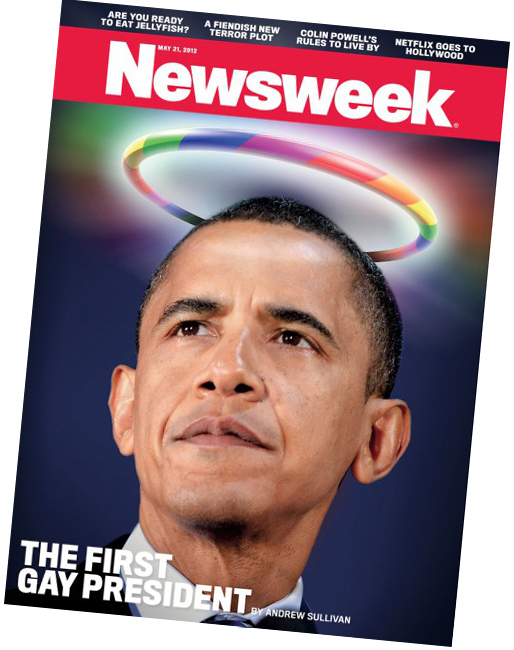the next guy
Superstar
NAIROBI, Kenya – President Barack Obama and Kenyan President Uhuru Kenyatta sparred over support for gay rights here Saturday, with Obama urging fast changes and Kenyatta saying it was not something Kenyan culture or society would “accept.”
Linking LGBT discrimination in Africa to the history of Jim Crow laws in America, Obama said ensuring gay rights must be a priority on a continent — and in a country — where bias against gays is accepted, and violence against gays is common.
Standing by Obama’s side at a joint press conference here in front of the Kenyan state house, Kenyatta repeated what he has said before about gay rights: it’s “a non-issue.”
Kenyatta’s remarks were the ones that drew applause among the Kenyan audience.
Obama, though, delivered a firm message: People may have their own personal biases, he said, but the government has a responsibility to make sure those are not part of the law.
“As an African-American in the United States, I am painfully aware of the history of what happens when people are treated differently under the law,” Obama said. “There were all sorts of rationalizations that were provided by the power structure for decades in the United States for segregation and Jim Crow and slavery, and they were wrong.”
Kenyatta went on to offer that kind of rationalization, arguing that he and his people are more concerned with economic growth, among other things.
“For Kenyans today, the issue of gay rights is really a non-issue. We want to focus on other issues that really are day-to-day issues for our people,” Kenyatta said.
Throughout Obama’s supportive response, Kenyatta’s body language was clearly uncomfortable, fidgeting at the podium. When pressed by a reporter if he’d answer after he initially seemed as if he’d duck the question posed to both leaders about gay rights, Kenyatta sighed, “yeah, I’ll address them.”
In a common refrain among African leaders, Kenyatta rattled off what he’d put on his agenda ahead of gay rights: public health, inclusivity of women, infrastructure, education and entrepreneurship, implying that he felt patronized by Americans who want him to care about an issue they only themselves began grappling with recently.

Also on POLITICO
Obama's most dangerous trip yet
EDWARD-ISAAC DOVERE
“Maybe once, like you have, [we’ve made progress] on some of these challenges, we can begin to look at new ones,” Kenyatta said. “But as of now, the fact remains that this issue is not really an issue that is in the foremost mind of Kenyans.”
Obama warned of wider danger from ignoring discrimination.
“If you look at the history of countries around the world, when you start treating people differently,” he said, “that’s the path whereby freedoms begin to erode and bad things happen.”
Read more: Obama, Kenyatta clash on gay rights in Kenya
Linking LGBT discrimination in Africa to the history of Jim Crow laws in America, Obama said ensuring gay rights must be a priority on a continent — and in a country — where bias against gays is accepted, and violence against gays is common.
Standing by Obama’s side at a joint press conference here in front of the Kenyan state house, Kenyatta repeated what he has said before about gay rights: it’s “a non-issue.”
Kenyatta’s remarks were the ones that drew applause among the Kenyan audience.
Obama, though, delivered a firm message: People may have their own personal biases, he said, but the government has a responsibility to make sure those are not part of the law.
“As an African-American in the United States, I am painfully aware of the history of what happens when people are treated differently under the law,” Obama said. “There were all sorts of rationalizations that were provided by the power structure for decades in the United States for segregation and Jim Crow and slavery, and they were wrong.”
Kenyatta went on to offer that kind of rationalization, arguing that he and his people are more concerned with economic growth, among other things.
“For Kenyans today, the issue of gay rights is really a non-issue. We want to focus on other issues that really are day-to-day issues for our people,” Kenyatta said.
Throughout Obama’s supportive response, Kenyatta’s body language was clearly uncomfortable, fidgeting at the podium. When pressed by a reporter if he’d answer after he initially seemed as if he’d duck the question posed to both leaders about gay rights, Kenyatta sighed, “yeah, I’ll address them.”
In a common refrain among African leaders, Kenyatta rattled off what he’d put on his agenda ahead of gay rights: public health, inclusivity of women, infrastructure, education and entrepreneurship, implying that he felt patronized by Americans who want him to care about an issue they only themselves began grappling with recently.

Also on POLITICO
Obama's most dangerous trip yet
EDWARD-ISAAC DOVERE
“Maybe once, like you have, [we’ve made progress] on some of these challenges, we can begin to look at new ones,” Kenyatta said. “But as of now, the fact remains that this issue is not really an issue that is in the foremost mind of Kenyans.”
Obama warned of wider danger from ignoring discrimination.
“If you look at the history of countries around the world, when you start treating people differently,” he said, “that’s the path whereby freedoms begin to erode and bad things happen.”
Read more: Obama, Kenyatta clash on gay rights in Kenya








